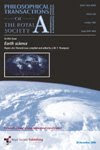"Where there's muck there's money" is an old adage in the UK.
Could the following report "Could trash be solution to tackling climate change?" be another twist to the the money game?
Quote:
"SINGAPORE -- September 2009 -- Converting the trash that fills the world's landfills into biofuel may be the answer to both the growing energy crisis and to tackling carbon emissions, claim scientists in Singapore and Switzerland. New research published in Global Change Biology: Bioenergy, reveals how replacing gasoline with biofuel from processed waste could cut global carbon emissions by 80%."
The team used the United Nation's Human Development Index to estimate the generation of waste in 173 countries. This data was then coupled to the Earthtrends database to estimate the amount of gasoline consumed in those same countries.
The team found that 82.93 billion litres of cellulosic ethanol could be produced from the world's landfill waste and that by substituting gasoline with the resulting biofuel, global carbon emissions could be cut by figures ranging from 29.2% to 86.1% for every unit of energy produced.
"If this technology continues to improve and mature these numbers are certain to increase," concluded co-author Dr. Lian Pin Koh from ETH Zürich. "This could make cellulosic ethanol an important component of our renewable energy future."
COMMENT STARTER:
How can burning gas for transportation reduce CO2 emissions substantially?
Lets get down to some of our own calculations.
Remember only every Big counts says Prof.David Mackay in Without Hot Air> not every little bit! (30 to 80% reductions) Is it 30% or is it 80% reduction.
Then waste must be disposed of in a healthy manner, and energy must be captured. Current manovers in such energy, water and waste management (EDF and Veolia here in France) may give a hint to likely directions in environmental interests, to the tune of 4_5 Million Euros in only one PDG's salary, that's strategic thinking. Will the planet and her citizens be better-off or "Debter-off?
More in (and from)
1. ScienceBlog
2. PHYSORG
September 29th, 2009
"Converting the trash that fills the world's landfills into biofuel may be the answer to both the growing energy crisis and to tackling carbon emissions, claim scientists in Singapore and Switzerland. New research published in Global Change Biology: Bioenergy, reveals how replacing gasoline with biofuel from processed waste could cut global carbon emissions by 80%."
3. Biofuels from urban waste
4. World of Renewables







